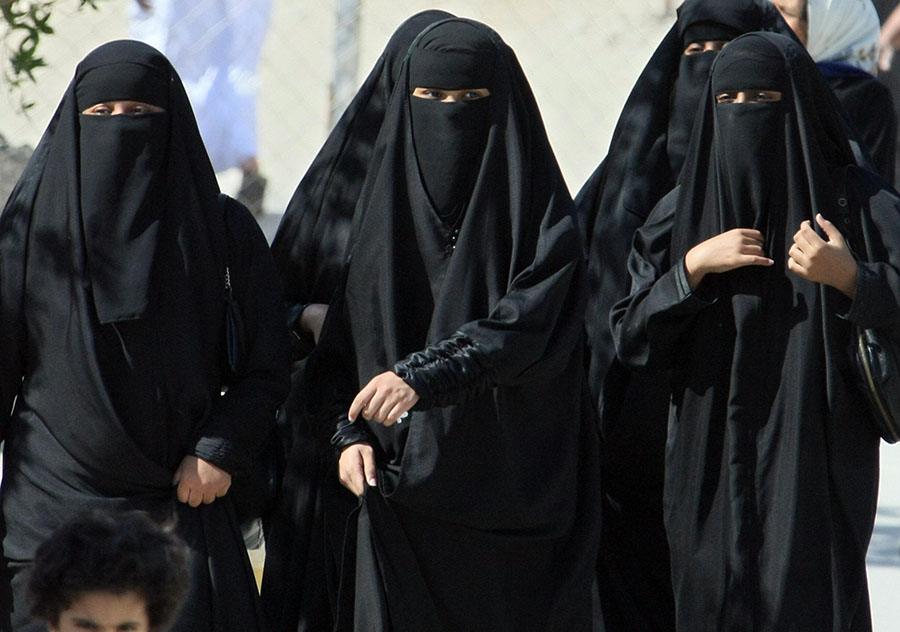Exporting Radicalism

HASSAN AMMAR/AFP/Getty ImagesSaudi women cross a street in Hofuf city, 250 kms east of the Saudi capital Riyadh, 22 November 2007.
Beyond funneling weapons to warring factions abroad, Saudi Arabia also exports its ideology, one so extreme that some have called Saudi Arabia “an ISIS that has made it.”
Indeed, the monarchical theocracy practices Wahhabism, a radical form of Islam whose founder, Muhammad ibn Abd al-Wahhab, demanded a literal interpretation of Islam and sentenced those who did not conform to his views to be killed, raped or rid of their possessions.
Wahhabism, according to author Alastair Cooke, first took root in Saudi Arabia in the 18th century, after al-Wahhab’s views had him kicked out of his hometown and the power-lusting Muhammad Ibn Saud saw political opportunity in al-Wahhab’s doctrine and took him in.
Armed with al-Wahhab, Cooke writes that the Sauds — akin to ISIS today — began attacking, looting, and massacring residents of local communities, and forcing their will unto those they conquered. By the early 19th century, Egyptians and Ottomans crushed Wahhabi forces and the first Saudi state, but neither Wahhabism nor visions of a Saudi state disappeared entirely.
By the early 20th century, Cooke writes that a Saudi-Wahhabist “renaissance” occurred, known as the Ikhwan. Fearful that the Ikhwan’s success in capturing Mecca, Medina, and Jeddah may actually spell a threat to King Abd-al Aziz, following a civil war he had all Ikhwan forces slaughtered — this time with a machine gun.
The bloodshed, Cooke writes, was worth its weight in gold — or rather, oil. Around that time, what was thought to be the world’s largest petroleum supply was being discovered in the region. After meeting with an aging Franklin Delano Roosevelt in 1945, the Sauds struck a deal with the United States — oil for U.S. political support — and one which stands, however strained, to this day.
Beyond the political support and historical dependence of the world’s most powerful country, oil booms meant colossal amounts of wealth for Saudi Arabia, which it would use to help spread its ultra-conservative dogma across Muslim countries.
While the exact numbers remain unknown, scholar Yousaf Butt estimates that the theocracy has spent over $100 billion propagating its fundamentalist view of Islam abroad — views which Saudi political dissidents such as Turki al-Hamad have called “fuel for ISIS.”
“You can see [in ISIS videos] the volunteers in Syria ripping up their Saudi passports,” al-Hamad said in a TV interview.
“In order to stop ISIS, you must first dry up this ideology at the source. Otherwise you are cutting the grass, but leaving the roots. You have to take out the roots,” he added.





